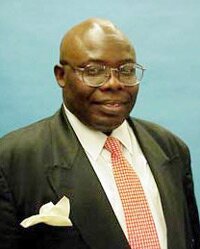Southern U. School of Architecture Wins Reaccreditation
|
Southern University's School of Architecture is retaining accreditation for its five-year Bachelor of Architecture program after passing muster with a visiting advisory team from the National Architectural Accrediting Board, Inc.
"It shows that we are showing progress," said Adenrele A. Awotona, Ph.D., dean of the school. "Now the program can continue in an accredited status without any interruption." SUSA�s accreditation expired on Dec. 31. The advisory team visited from Jan. 22 to 25. The accrediting board decided at a Feb. 6-7 meeting to approve the program on a probationary basis until Dec. 31, 2005. In a Feb. 18 letter to Southern Chancellor Edward R. Jackson, Joseph P. Giattina, Jr., president of the accrediting board, said the program�s continued accreditation required the School of Architecture to submit annual reports, which are due by June 1. The reports must include responses to each "not met" condition or "cause of concern" identified in the latest Visiting Team Report. The team�s last report, dated March 2002, cited 13 deficiencies. Second-year architecture student Elton Pullet said he was happy that everything was out in the open. "Everyone was nervous of not knowing if we had accreditation," Pullet said. "We as students were under the impression that we had accreditation. We had no idea of what to do, we had no vision." NAAB is the sole agency authorized to accredit U.S. professional degree programs in architecture. Without the accreditation, a student majoring in the architecture program in the state of Louisiana would not be allowed to take the licensing exam needed to practice architecture. The next accreditation visit is to occur in 2006, when the visiting team can either recommend a three-year term of accreditation or revocation of accreditation with no possibility of candidacy status until 2010. Posted March 4, 2004 |
https://blackcollegewire.org/news/040302_southern-architecture/
|
Home | News | Sports | Culture | Voices | Images | Projects | About Us Copyright © 2004 Black College Wire. Black College Wire is a project of the Black College Communication Association and the Robert C. Maynard Institute for Journalism Education. |
